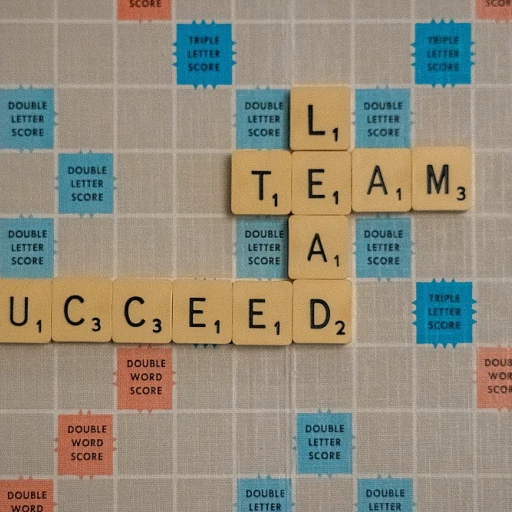
Understanding the Role of a CHRO
The Evolving Role of Human Resources Leadership
Understanding the role of a Chief Human Resources Officer (CHRO) is pivotal for those aspiring to climb the leadership ladder in HR. The position not only involves overseeing the HR department but also requires an amalgamation of strategic thinking, effective communication, and emotional intelligence. The CHRO is often the linchpin in fostering a work environment that encourages continuous learning and effective team management.
In the evolving landscape of business, CHROs must adapt to various core essentials that shape effective leadership. This includes a keen focus on leadership development and nurturing leadership skills among team members to ensure the organization's success. With an increased emphasis on leadership styles that promote inclusivity and growth, the CHRO is tasked with building and leading diverse teams that reflect these ideals.
The role demands a comprehensive understanding of change management, as modern organizations face frequent transitions. A competent CHRO will help leaders navigate these challenges through strategic planning and decision making. Additionally, the development of communication skills is crucial to influence and implement necessary changes effectively.
Leadership training and topics such as conflict resolution, problem solving, and emotional intelligence are integral components of a CHRO's responsibilities. These skills not only aid in team building but also in fostering a culture that supports time management and strategic decision making. Through a combination of learning and application, CHROs are essential in preparing organizations for future challenges and opportunities.
Key Leadership Skills for CHROs
Fostering Leadership Capabilities in HR
In the fast-paced world of human resources, the chief HR officer must possess a unique set of leadership skills that cater to both the needs of the employees and the strategic goals of the organization. This dual role necessitates a comprehensive understanding of effective leadership strategies that transcend traditional management practices.
Emotional Intelligence and Effective Leadership
One paramount skill for CHROs is the ability to demonstrate emotional intelligence. This capability enables leaders to effectively navigate interpersonal interactions, leading to a more harmonious work environment. By understanding the emotions of their team members, CHROs can foster a culture of trust and open communication, which is essential for team success and development.
Navigating Conflict and Change
Conflict resolution and change management are critical when it comes to leading teams effectively. The ongoing changes in business landscapes require leaders to be adept at managing transitions smoothly. CHROs must be able to assess and resolve conflicts efficiently to maintain a productive and positive work environment. Their skills in strategic planning and decision-making equip them to guide their teams through periods of change and innovation.
Continuous Learning and Development
The importance of continuous learning cannot be overstated in the context of leadership development. CHROs must engage in regular leadership training to stay abreast of new trends and enhance their existing skill set. Approaching these training topics with an open mind and a willingness to learn will help leaders drive success both personally and professionally.
Effective communication skills are also a cornerstone of successful leadership. CHROs should focus on enhancing their ability to relay information clearly and persuasively, thus ensuring that their teams are aligned with organizational goals. With strong communication, CHROs can influence and guide their teams toward achieving greater milestones.
For detailed insights into these leadership skills, consider referencing our comprehensive guide on how a New Jersey salary pay stub example offers valuable lessons for understanding diverse HR topics: enhancing HR expertise.
Strategic Thinking and Decision-Making
Strategizing for Success in HR Leadership
In the dynamic realm of HR leadership, strategic thinking and decision-making are indispensable skills. A Chief Human Resources Officer (CHRO) often finds themselves at the crossroads of aligning human capital strategy with the overarching business goals. This requires a nuanced understanding of strategic planning and the ability to make informed decisions that promote effective leadership and drive organizational success.
To develop these skills, CHROs must engage in continuous learning and stay updated on the latest training topics that focus on leadership styles, change management, and strategic approaches. Strategic management in HR further entails proactive workforce planning, talent management, and devising policies that reflect the company’s mission and values.
The Art of Decision Making
Decision-making in HR is not just about choosing the best option from available alternatives; it involves assessing potential impacts on employees and the broader organization. The ability to make sound decisions is enhanced by emotional intelligence and a keen understanding of workplace dynamics. Leaders must consider how their decisions affect teams and the work environment, ensuring that they support both the immediate and long-term objectives of the organization.
A CHRO skilled in decision-making leverages diverse perspectives within teams to navigate complex challenges effectively. By fostering an inclusive environment where every team member feels valued, leaders can drive innovation and creativity while solving problems collaboratively. Training in areas like conflict resolution and relation-building are essential to refining these abilities.
Cultivating a Strategic Mindset
Developing a strategic mindset requires dedication and ongoing leadership development. Participating in leadership training programs that focus on strategic thinking and problem-solving will help leaders such as CHROs better anticipate future challenges and opportunities. By honing these skills, they can lead their teams more effectively and implement changes that align with the organization’s goals.
Ultimately, for a CHRO, mastering strategic thinking and decision-making is more than a set of skills—it's about instilling a culture of purpose-driven leadership throughout the company. By guiding their teams with a clear vision and robust strategy, CHROs contribute significantly to the resilience and adaptability of the organization in navigating change and innovation.
Effective Communication and Influence
Mastering the Art of Communication and Influence
In the role of a Chief Human Resources Officer (CHRO), effective communication and influence are indispensable skills. They are at the core of leadership development and help leaders steer their teams towards success. A CHRO needs to excel in these areas to foster a productive work environment and drive change management initiatives. The ability to clearly articulate ideas and strategies is a hallmark of effective leadership. As a CHRO, one must tailor communication strategies to various audience types, from the executive board to individual team members. This requires a keen understanding of emotional intelligence to empathize and connect with others on a meaningful level. Influence goes hand-in-hand with communication. Building and maintaining strong relationships across the organization supports CHROs in advocating for necessary changes and innovations. By harnessing strategic thinking and decision-making skills, they can present compelling arguments that encourage others to buy into their vision. CHROs can benefit significantly from leadership training focused on enhancing communication skills. Topics such as conflict resolution, negotiation skills, and active listening are crucial for effective leadership. Continuous learning in these areas ensures that CHROs remain agile and responsive to the evolving dynamics of the workplace. The role also demands proficient time management and strategic planning. By setting clear goals and managing resources effectively, CHROs can maintain open lines of communication and foster an environment of trust and collaboration. These efforts contribute to the development of cohesive teams that work harmoniously to achieve organizational objectives. In summary, mastering communication and influence is vital for CHROs to guide their organizations successfully. Through strategic planning and the cultivation of leadership skills, they are well-equipped to lead diverse teams through periods of change and innovation effectively.Building and Leading Diverse Teams
Fostering an Inclusive Work Environment
Building and leading diverse teams is a cornerstone of effective leadership for Chief Human Resources Officers (CHROs). In today's globalized world, the ability to foster an inclusive work environment is not just a desirable skill but a necessity. CHROs must ensure that their teams are composed of individuals from varied backgrounds, bringing unique perspectives and ideas to the table. This diversity is crucial for innovation and problem solving, as it allows for a broader range of solutions and strategies.
Developing Emotional Intelligence
Emotional intelligence is a key component in managing diverse teams. CHROs need to be adept at understanding and managing their own emotions, as well as empathizing with the emotions of their team members. This skill helps in conflict resolution and enhances communication skills, which are vital for maintaining a harmonious work environment. Leadership development programs often emphasize emotional intelligence as a critical area for growth.
Implementing Effective Leadership Styles
Different situations and team dynamics require different leadership styles. CHROs should be flexible in their approach, adapting their style to meet the needs of their team and the organization. Whether it’s a more directive approach during times of change management or a participative style to encourage team building, effective leaders know when and how to adjust their strategies.
Continuous Learning and Development
To lead diverse teams successfully, CHROs must commit to continuous learning and development. This involves staying updated on the latest leadership training topics and trends, as well as investing in leadership training for their teams. By promoting a culture of learning, CHROs help leaders within their organization to develop the skills necessary for success, such as strategic thinking, decision making, and time management.
Strategic Planning for Team Success
Strategic planning is essential for aligning team goals with organizational objectives. CHROs must engage in strategic thinking to anticipate future challenges and opportunities. By doing so, they can guide their teams through change and innovation, ensuring that the organization remains competitive and agile. Effective leadership in this area involves not only planning but also executing strategies that drive team success.













